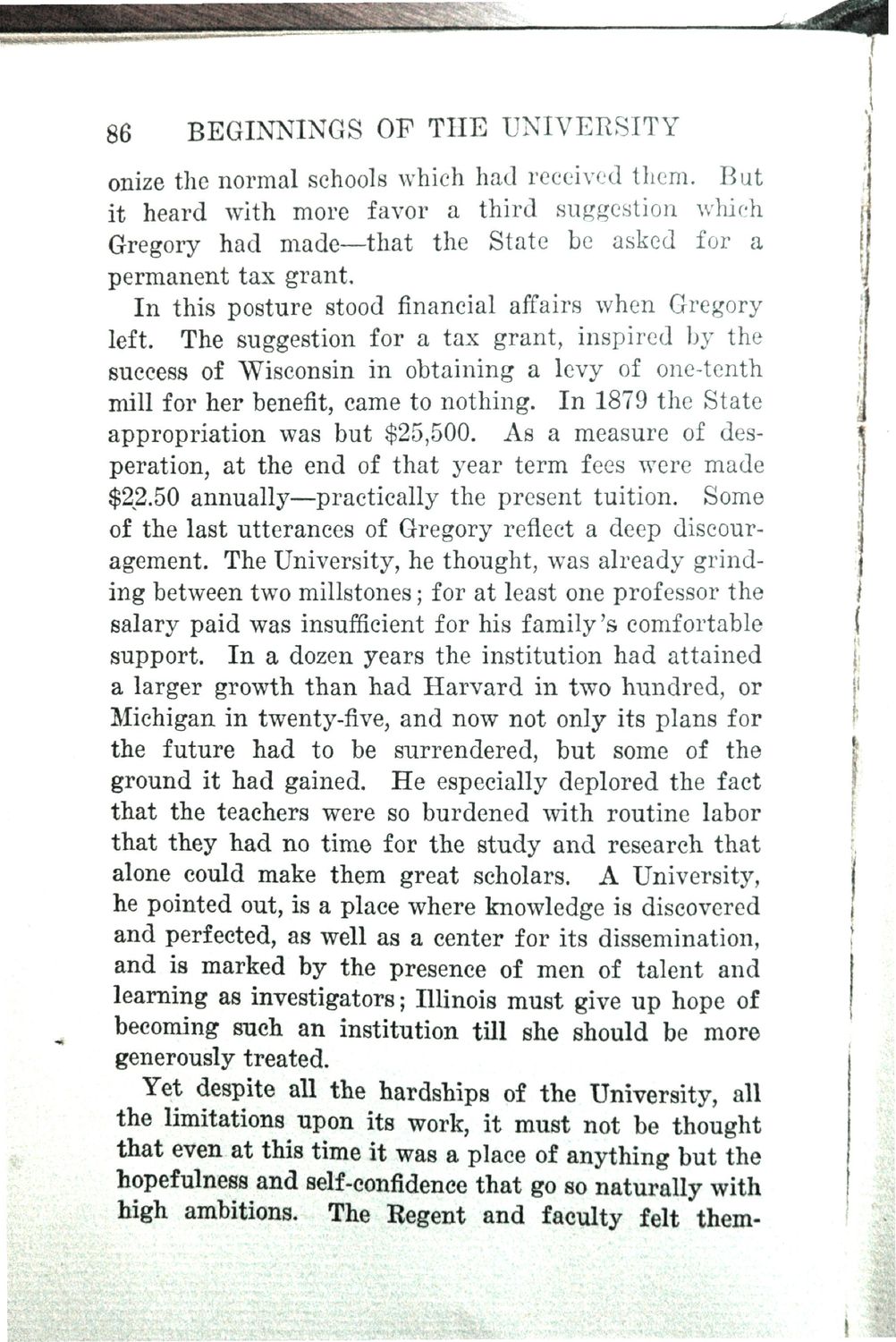| |
| |
Caption: Book - History of the University (Nevins)
This is a reduced-resolution page image for fast online browsing.

EXTRACTED TEXT FROM PAGE:
86 BEGINNINGS OP THE UNIVERSITY onize the normal schools which had received them. But it heard with more favor a third suggestion which Gregory had made—that the State be asked for a permanent tax grant. In this posture stood financial affairs when Gregory left. The suggestion for a tax grant, inspired by the success of Wisconsin in obtaining a levy of one-tenth mill for her benefit, came to nothing. In 1879 the State appropriation was but $25,500. As a measure of desperation, at the end of that year term fees were made $22.50 annually—practically the present tuition. Some of the last utterances of Gregory reflect a deep discouragement. The University, he thought, was already grinding between two millstones; for at least one professor the salary paid was insufficient for his family's comfortable support. In a dozen years the institution had attained a larger growth than had Harvard in two hundred, or Michigan in twenty-five, and now not only its plans for the future had to be surrendered, but some of the ground it had gained. He especially deplored the fact that the teachers were so burdened with routine labor that they had no time for the study and research that alone could make them great scholars. A University, he pointed out, is a place where knowledge is discovered and perfected, as well as a center for its dissemination, and is marked by the presence of men of talent and learning as investigators; Illinois must give up hope of becoming such an institution till she should be more generously treated. Yet despite all the hardships of the University, all the limitations upon its work, it must not be thought that even at this time it was a place of anything but the hopefulness and self-confidence that go so naturally with high ambitions. The Regent and faculty felt them-
| |